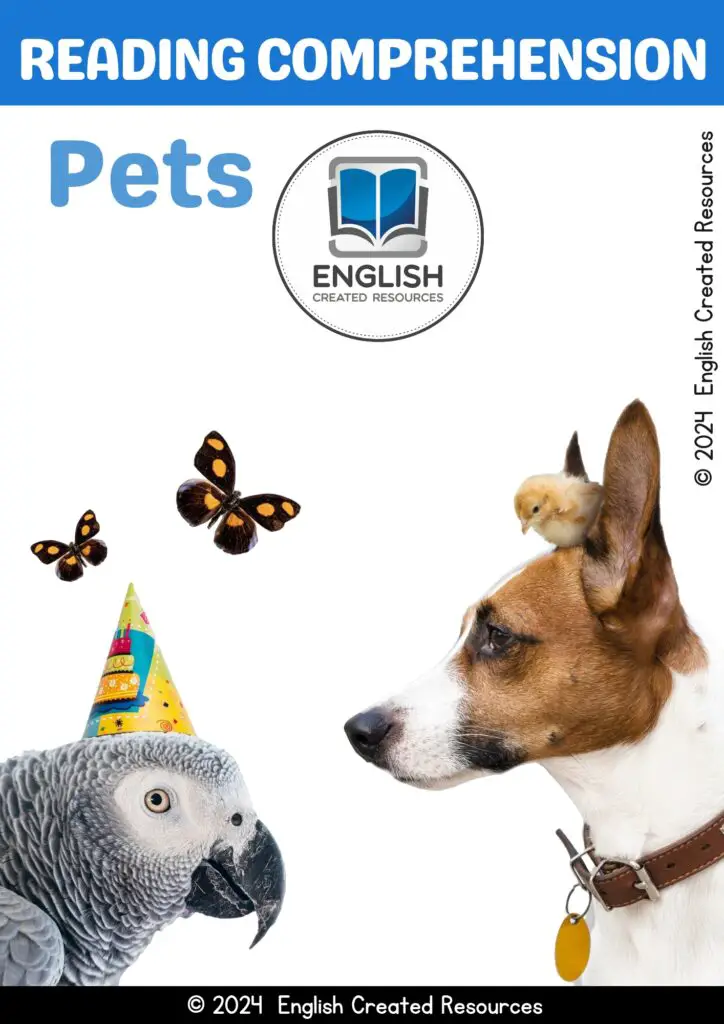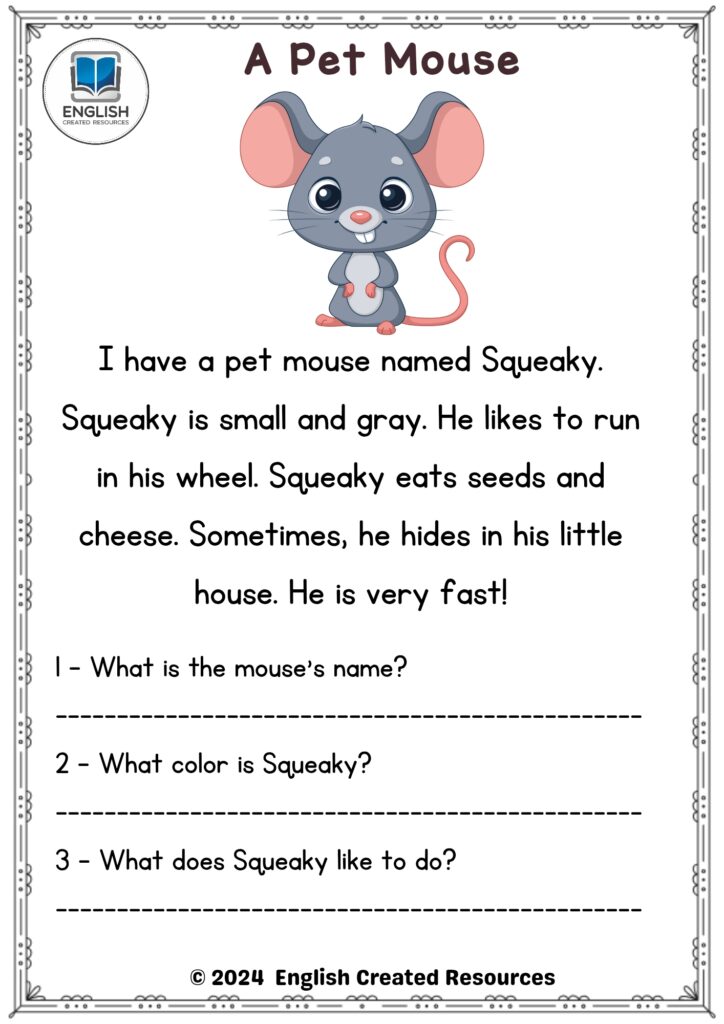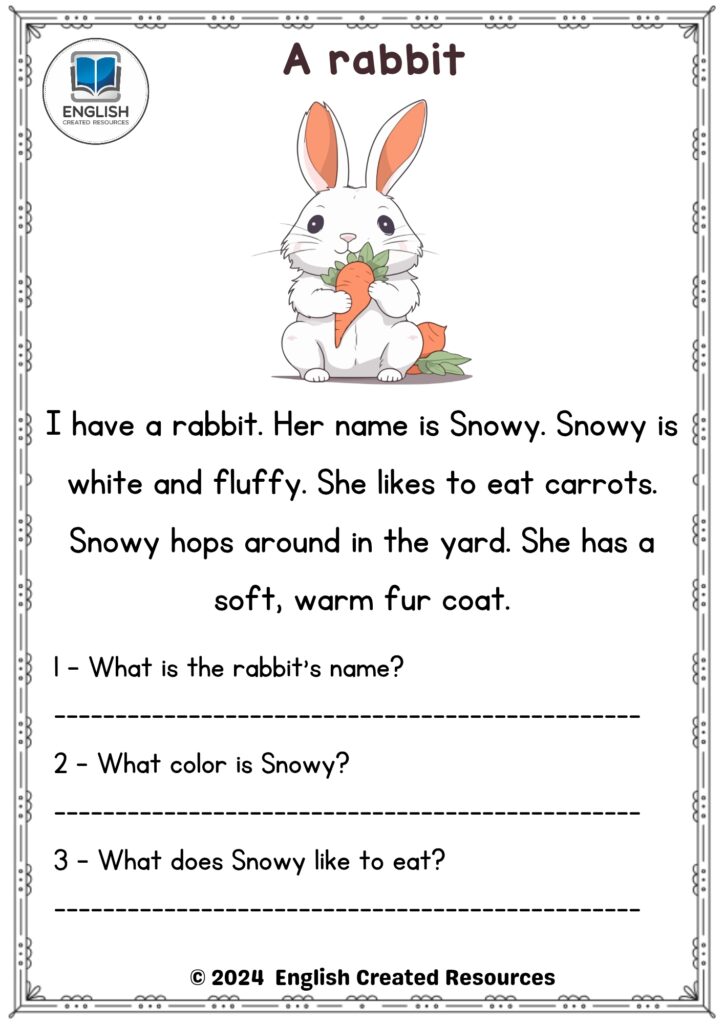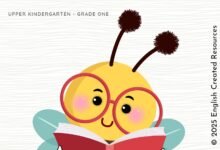Reading Comprehension Pets

Reading Comprehension Pets
Reading comprehension is one of the most crucial skills for young learners, especially for children in grade one. At this early stage of their academic journey, children are exposed to various learning experiences that build a strong foundation for their future educational success. While learning to recognize letters and sounds is important, reading comprehension is what truly unlocks the potential for deeper understanding, critical thinking, and communication. It is essential not only for academic achievement but also for cognitive, social, and emotional development.
In grade one, children are typically introduced to early literacy concepts. They begin by learning how to decode words, recognize sight words, and blend sounds together. However, being able to read words on a page does not automatically mean that a child understands what they have read. Reading comprehension involves interpreting the meaning of the text, making connections between the material and prior knowledge, and being able to recall and analyze information. Without comprehension, even the best readers would struggle to succeed in school and beyond.
One of the most significant reasons that reading comprehension is so important in grade one is that it serves as the foundation for all future learning. As children advance in school, reading becomes the primary method by which they access knowledge in nearly every subject. Whether they are solving a math word problem, reading a science textbook, or understanding historical events in a social studies lesson, comprehension is key to retaining and applying the information. In grade one, children are still developing their basic literacy skills, but their ability to comprehend what they read will directly influence how well they can understand other subjects. Without comprehension, children may struggle in later grades when they are asked to read longer and more complex texts.
Furthermore, reading comprehension is directly linked to language development. In grade one, children begin to expand their vocabulary as they are exposed to new words in stories, poems, and informational texts. When children comprehend what they read, they are more likely to understand the meaning of new words and incorporate them into their daily conversations. This vocabulary growth contributes not only to stronger reading and writing skills but also to improved speaking and listening abilities. A rich vocabulary allows children to express themselves more clearly and to understand others more effectively. The more children read and comprehend, the more they will be able to use language to communicate their thoughts and ideas.
Reading comprehension also plays a critical role in developing a child’s critical thinking skills. As children learn to read, they are not just memorizing information; they are being trained to think critically about what they read. In grade one, this process often involves answering simple questions about a text, such as identifying the main idea, recognizing key details, or discussing the feelings and motivations of characters. For example, when reading a story about a young girl helping a friend, children might be asked why the girl made certain choices or how the situation made her feel. These types of questions encourage children to analyze the text and consider different perspectives. This ability to think critically is essential for success in school and in life. The more children practice these skills, the better they will become at solving problems, making decisions, and forming their own opinions.
Additionally, reading comprehension is essential for fostering a child’s love of reading. When children understand the stories they read, they are more likely to enjoy the experience and seek out books on their own. In grade one, many children begin to develop a sense of excitement about reading, and comprehension is the key to this excitement. If children can make sense of the stories they encounter, they are more likely to develop a lifelong love for reading. This love for reading can carry over into many areas of life, fostering a habit of lifelong learning and curiosity. Children who enjoy reading are more likely to be motivated to read more, explore new genres, and seek out information on topics that interest them. A love of reading often leads to greater academic success and a broader understanding of the world.
Another important aspect of reading comprehension in grade one is its impact on social and emotional development. When children read stories with characters they can relate to or learn from, they gain a better understanding of themselves and others. Stories often present situations that require characters to make difficult decisions or face challenges. Through these stories, children can explore concepts like empathy, kindness, and perseverance. For instance, when reading about a character who struggles with a problem but eventually finds a solution, children learn the value of persistence. Additionally, stories often introduce new cultures, perspectives, and ideas that help children develop respect and understanding for the world around them. These lessons go beyond the classroom and contribute to a child’s emotional growth.
Moreover, reading comprehension in grade one can also improve a child’s test-taking abilities. In many standardized tests, students are required to read passages and answer questions about the content. Students who struggle with comprehension may find these tests challenging and may not perform to the best of their abilities. Developing strong reading comprehension skills early on can make these types of assessments much easier. When children understand the material they are reading, they are more confident in their ability to answer questions accurately and thoroughly. This confidence can translate into improved performance on tests and in-class assignments.
In conclusion, reading comprehension is an essential skill for grade one students and plays a vital role in their academic, social, and emotional development. It is the foundation for success in school and beyond, as it allows children to fully understand the material they encounter in every subject. Comprehension also enriches vocabulary, promotes critical thinking, fosters a love of reading, and encourages emotional growth. When children comprehend what they read, they gain the confidence and skills necessary for a lifetime of learning. By focusing on reading comprehension in grade one, we are preparing children not only for academic success but also for a future where they can navigate the world with curiosity, understanding, and empathy.
Samples From The Text





